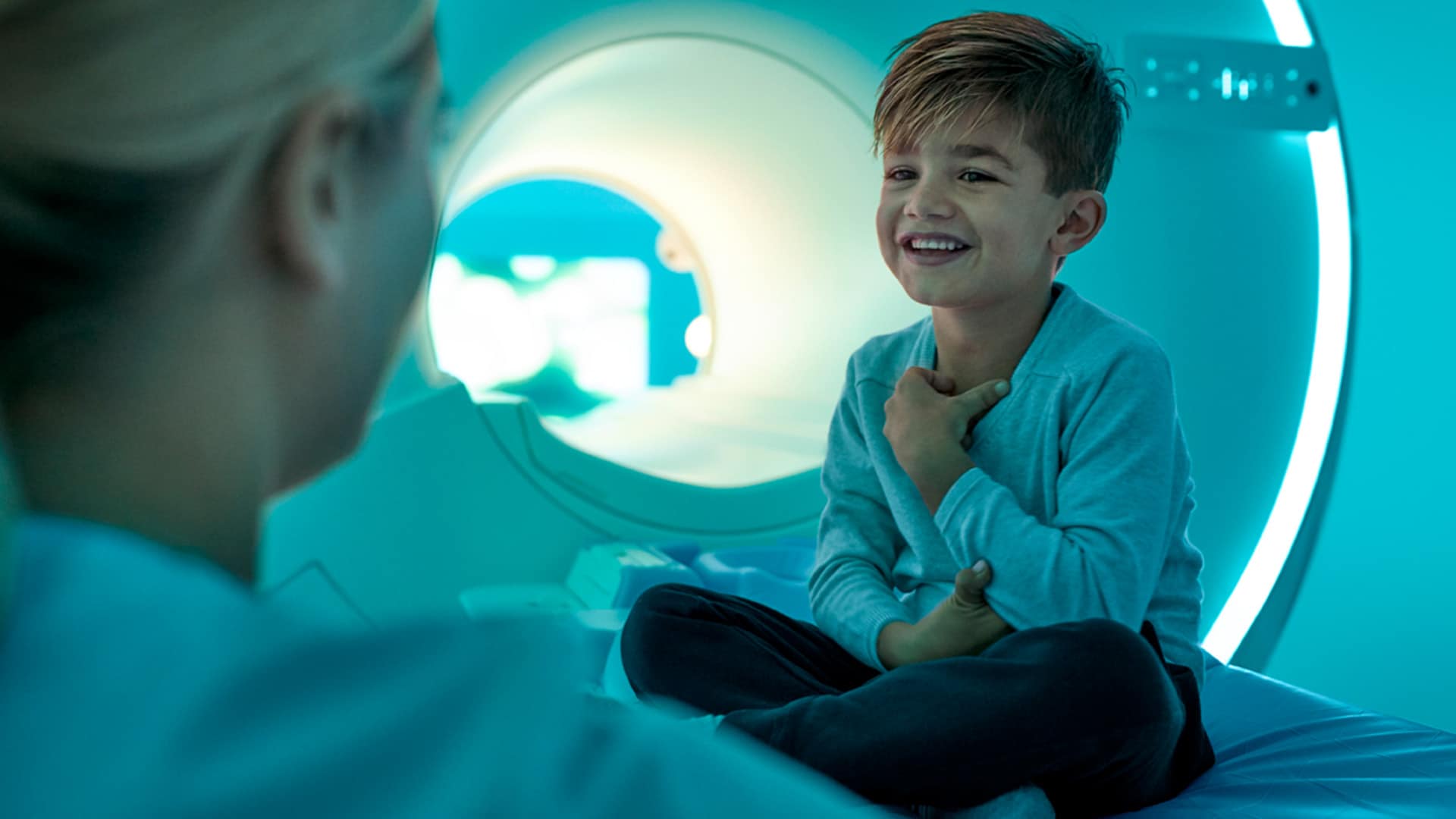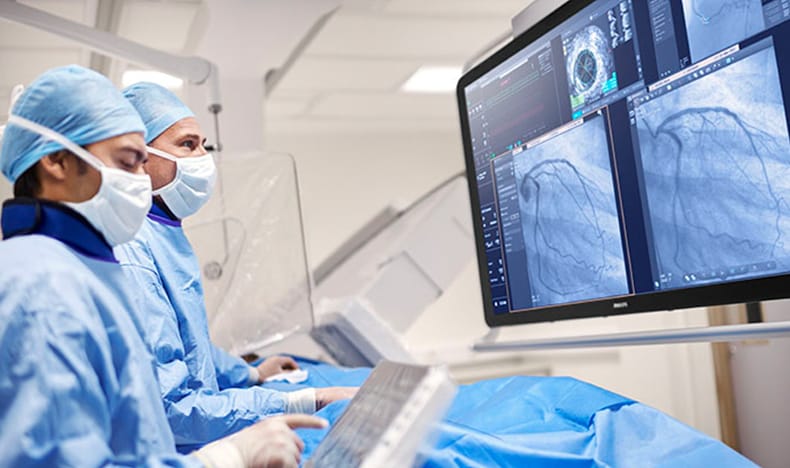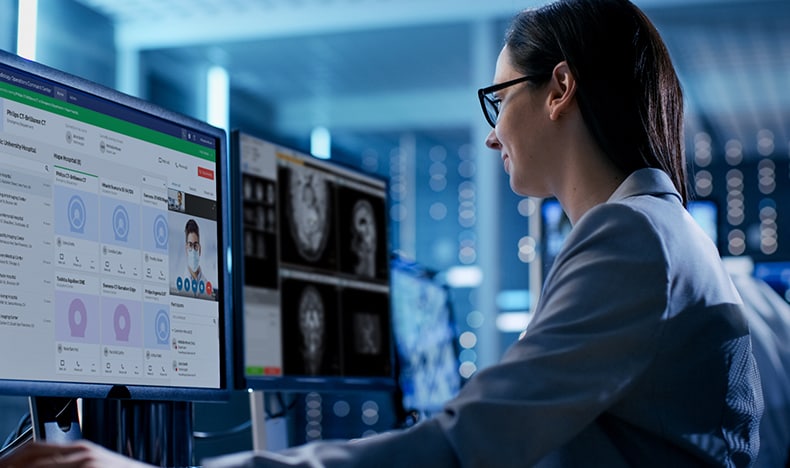Making the case for systemic change in healthcare
Oct 25, 2023 | 7 minute read
One year ago, I started as the leader of Philips with a huge sense of responsibility and determination, as well as a realistic view of the challenges ahead.
Having had the chance to work with so many people in healthcare over the last year, it feels like the right time to walk through the opportunity I see to drive real change across our industry. I also want to openly address the challenges we’re facing at Philips and point to the progress we’re making.

I’m writing this as the world is in turmoil. It’s absolutely devastating to think of the many lives lost and the profound impact on families and communities. My heart goes out to the victims and their loved ones. I’m also conscious that there are rising geo-political tensions in other parts of the world, adding to a feeling of uncertainty for what lies ahead. This comes on top of the big challenges of our time – such as the millions of people every day who can’t access the healthcare they need, but also food and water insecurity, and climate change. These challenges magnify the urgency I feel to ensure Philips becomes an even stronger force for good in a world that is in turmoil. At the same time, I’m deeply aware of the challenges we’ve faced in recent years and the importance of addressing these.
One year in on our multi-year journey
As I’ve said before, while we have evolved into a health technology company over the last decade or so, improving millions of lives every day, we have at times fallen short of expectations. The Respironics recall has affected many patients and their care providers. We let people down. For that, we are deeply sorry. I am deeply sorry.
We are taking this as an opportunity to learn and improve. Because we can and we will do better. We have new teams in place, stronger processes and more effective early warning systems. We are making progress, and it will take time, but we will continually look to improve.
Addressing the challenges we face is part of the plan I launched back in January – our plan to create value with sustainable impact. Our actions to enhance patient safety and quality, strengthen our supply chain reliability and establish a simplified operating model are delivering results, as shown by the growth we’ve seen over successive quarters, meaning we have been reaching and supporting more patients and consumers every month. This is a crucial part of measuring our impact and purpose to improve more lives around the world.
We’re on a multi-year journey, and I am very pleased that we’re on our way to getting Philips back to where we belong. I’m the first to call out all the great work our teams do around the world, and their incredible talent and commitment, but we know we can do more to consistently drive greater impact.

At Philips, we want to help more healthcare providers help more patients, in a sustainable way, and empower more people to take care of their health and well-being – through innovation, design and sustainability. The stronger we are, and the more momentum we gain, the more we can help make a difference, and help drive real change across healthcare.
Healthcare – the case for change
Today, healthcare is simply not working as it needs to, and health systems are struggling to deliver accessible, high-quality care to patients.
The reality is that there are not enough doctors and nurses to address the growing demand for care. Some are leaving the profession for good, others are burnt out. They’re overloaded, overworked and overwhelmed – working in a system that is complex, siloed and disconnected. This has only become clearer for me in the last year.
In parallel, rising costs are stretching financial budgets to the limit. There’s increasing pressure to do more with less, only adding to the burden.
The result? Long waiting times, less accessible care delivery, and a loss of confidence in the system.
The harsh truth is that – let me call it out – health systems will not hold if we continue down this path. The demands are simply unsustainable. Everyone agrees that we need to ‘fix the system’, but healthcare providers are struggling to transform, as the immediate day-to-day pressures eat up all available time and resources.
At Philips, we’re calling for systemic change. Change that addresses technology, clinical practice, financing and regulation as an integrated whole. Change that delivers healthcare that works for everyone. Without change, communities all around the world – both rich and poor, in both wealthy and emerging economies – will increasingly face challenges to get the care they need.
The future of health and healthcare

There’s a lot of work to be done, but we see the potential for a future where people everywhere, no matter who they are or where they live, are able to look after their health and well-being, and access the care they need, when they need it – with Philips focusing on where we can help.
A future where disease prevention is a priority for all communities. Where health systems run smoothly, efficiently and sustainably, with doctors and nurses seeing the patient at the right time and at the right point of care. And where they can be confident that the right choice is also the easy choice, with simple workflows enabling them to give patients the best care and best experience possible. This is what drives us!
Our Radiology Operations Command Center, for example, is a multi-vendor imaging solution that connects imaging experts in a command center with technologists at scan locations across their organization. It enables imaging experts to communicate with technologists and view scanner console screens simultaneously.

We see a world where it’s easier for people everywhere to look after their health and well-being. With solutions, for example, supporting more parents and babies in the first 1,000 days, including infant feeding, connected baby monitors and digital parental solutions, as well as fetal monitoring that leverages clinical expertise. Other examples include oral healthcare solutions supporting the connection between good oral care and good overall health.
We see tomorrow’s healthcare as a connected and accessible network of virtual and in-person care, with real-time and predictive insights supporting collaboration across the patient journey. And with AI optimizing workflows and improving efficiency, so that clinical staff get the time and space to focus on what they do best: caring for their patients.
For example, cardiology departments are under immense pressure. Clinicians not only need to manage the delivery of high-quality care for a growing volume of complex pathologies but must also deal with pressures to improve departmental efficiency and more. From helping clinicians acquire the right image and analyze it in the right way, to cutting the assessment time for cardiac MR and CT images, we’re integrating AI across our portfolio to help clinicians make sense of all the information available to them so they can focus on what matters.

The opportunities are clear. To get to a better tomorrow and drive real change across healthcare, we'll have to work together, with every sector of the industry playing its part.
Let’s take on the challenge!
…
Lastly, in my leadership role at Philips, I still feel the huge sense of responsibility I felt on day one. I also remain focused and realistic about the challenges we face. But I’m ever more committed to delivering on our purpose to improve people’s health and well-being through meaningful innovation. And to driving real change, so healthcare works for everyone.
Share this page with your network













